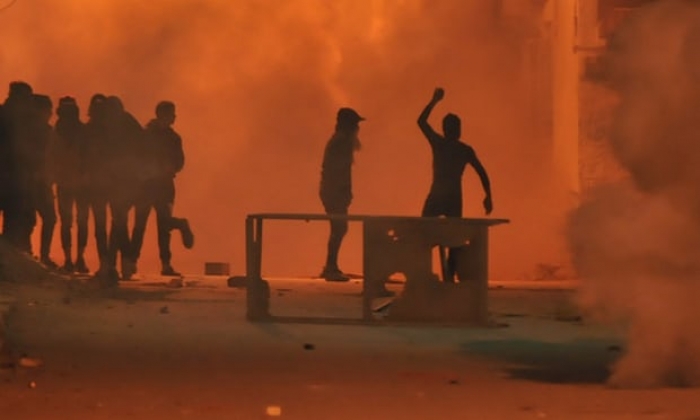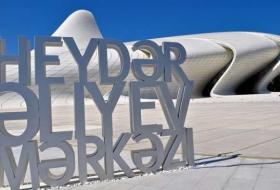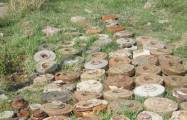Police have insisted they did not kill the man, who they say had a chronic respiratory condition. The results of an autopsy have not been made public.
Clashes erupted in more than 20 towns and cities late on Tuesday, including the southern city of Gafsa and in Sidi Bouzid, the cradle of the protests that led to the ousting of Zine al-Abidine Ben Ali in 2011 and sparked the regional Arab spring uprisings.
Young people blocked roads and hurled stones, causing the police to retaliate with teargas, according to an AFP reporter on the ground in Sidi Bouzid. In Tunis, a crowd stormed a Carrefour market.
The protests broke out after activists and politicians denounced increases in VAT and the introduction of social contributions at the start of the year as a tough new budget was implemented.
A year ago, the government agreed to a four-year loan programme with the International Monetary Fund worth about $2.8bn in return for economic reforms.
Protests have become common in Tunisia in January, the anniversary of the 2011 revolt, which was sparked by the death of Mohamed Bouazizi, a street seller who set himself on fire in a protest over unemployment and police harassment.
While Tunisia is widely seen as the only democratic success story among the nations where Arab spring uprisings took place, it has since had nine governments, none of which has been able to tackle growing economic problems.
About 50 police were wounded in clashes and 237 people were arrested on Tuesday, said an interior ministry spokesman, Khelifa Chibani. Among the arrested were two radical Islamists who had helped storm a police station in Nefza town, he said.
Heythem Guesmi, of Manich Msamahm (I Will Not Forgive), said the activist group was calling for justice over the death in Tebourba and a return to the aims of the 2011 revolution.
He said the new budget “has made the rich richer and the poor poorer. By increasing taxes and the cost of such basic items as flour, telephone bills and internet access, they’ve risked families’ food security. Prices have increased, but incomes have remained at the very lowest level.”
Another activist, Wael Naouar, from the What Are We Waiting For? movement, called for the 2018 budget to be withdrawn.
Callum Redfern, a Tunis-based British multimedia journalist who travelled to Tebourba on hearing about the person who died there, said: “My impression is that this [anger] has been building up for years. In Tunis, it’s all pretty well controlled … The further you get from Tunis the wilder it gets.”
Chibani said “criminals” had looted and burned security centres, torched police cars and attacked government offices. “They blocked roads and carried out robberies in many cities, he said. “Obviously these are not protests but theft and damage to public and private property.”
The prime minister, Youssef Chahed, said on Tuesday that his government respected the right to protest but recent demonstrations had descended into “acts of vandalism, looting and violence against citizens”.
“We are in a democracy, and those who want to protest can do it during the day, not at night,” said Chahed, who heads a coalition of Islamist and secular parties.
The demonstrations have so far been smaller than others in recent years, but the confrontations between the government, labour unions, Islamists and secular forces that led to the 2011 revolt also started on a small scale.
Analysts say Chahed could amend some of his reforms. Pressure from unions has already led to an agreement to increase public sector salaries and avoid layoffs.
The government plans to offer voluntary redundancies to cut the bloated civil service, but a rise in petrol prices and social security contributions are hard for people to swallow after years of hardship.
“At the time of Ben Ali, which we did not like, I filled my stand with vegetables, fruits and other items with 10 dinars, and now 50 dinars do not fill this gap. The situation has worsened dramatically,” said Fatma, a market trader in Tunis.
“The government is sacrificing the poor and the middle class by raising prices and ignoring tax evaders and businessmen,” she said.
The Ennahda Islamist party, part of the ruling coalition, said the government should raise the minimum monthly wage of 357 dinars ($143) and give more aid for poor families, joining similar calls by labour unions. There was no immediate comment from the government.
Europe is concerned about stability in Tunisia partly because unemployment there has forced many young Tunisians to go abroad. The number of boats smuggling migrants to Italy has been rising and Tunisia has also produced significant numbers of recruits for Islamic State.
Two Molotov cocktails were thrown at the entrance of a Jewish school on the tourist resort island of Djerba, in an attack blamed on assailants exploiting a reduced security presence because police were busy elsewhere. Tunisia, which is predominantly Muslim, has a Jewish minority of fewer than 1,800 people.
More about: #Tunisia
















































